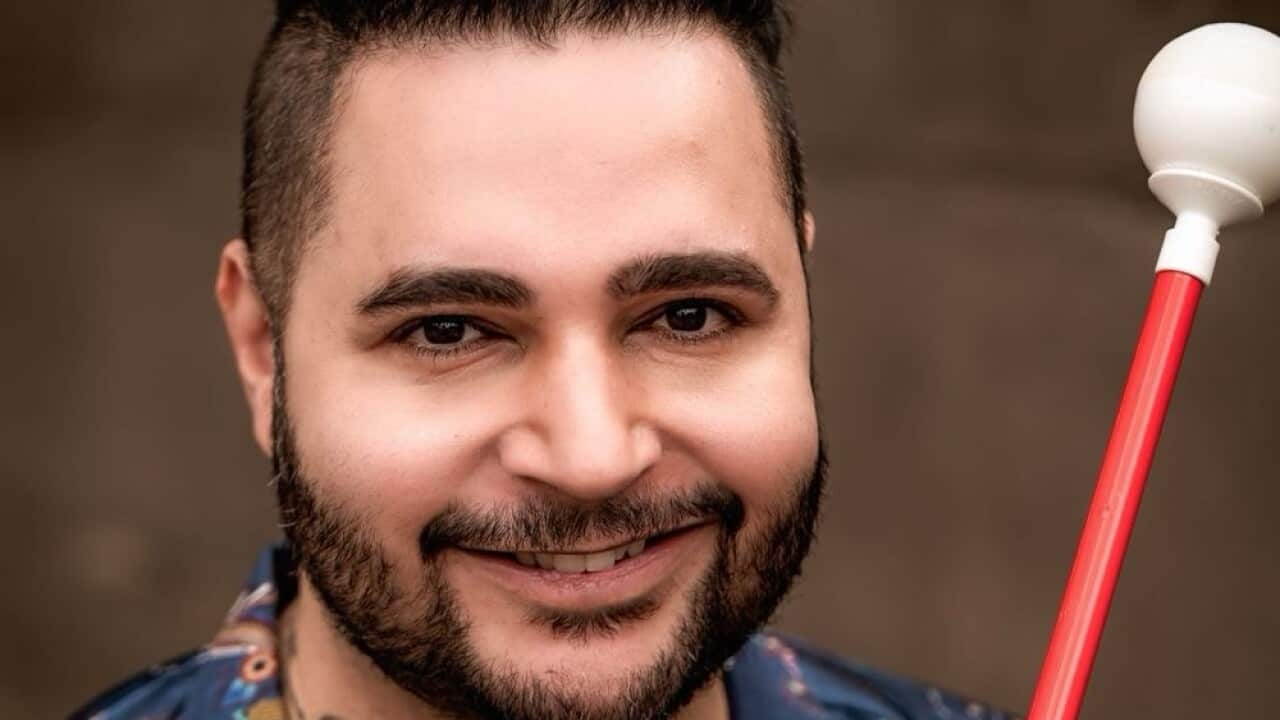Watch Insight’s episode Diversity Dilemma — exploring if the push for diversity is broadening our horizons or stifling us — on
I grew up in India, a country where there are so many different languages and cultures.
My parents were quite progressive, so to me, diversity, and my understanding of it, felt like something very positive.
I was able to travel and experience a lot of different cultures and that helped broaden my perspectives too.
But this isn’t the case for everyone who grows up in a diverse society.
I feel as though there’s this false narrative out there that only white people are not inclusive.
Karan (left) and his husband David on his wedding day. Source: SBS
There have been instances where the most judgement I’ve received was from a group of people from my own cultural background.
Some people in India still hold on to the archaic beauty standards that consider having lighter skin as more attractive than dark skin.
The progressive and liberal beliefs of my family were also not the norm when I was growing up.
I almost feel like I was a minority in my own country because my views were too progressive for the society we lived in.
Hitting the ‘diversity jackpot’
When I moved to Australia to study at 19, I grappled with feeling like a minority for entirely different reasons.
I was an Indian man living in Perth, I was gay, and I was going blind.
It’s been almost twenty years since I first arrived and though things feel better than they did, I still think we have a long way to go.
I often joke around that I hit the ‘diversity jackpot’.
While a jackpot can often indicate something positive, sometimes being too different can be a burden.
Karan Nagrani is now a disability advocate, he says that like any disability – blindness exists on a spectrum. Source: SBS
Every time I meet someone, I have to answer a lot of questions.
It starts when I introduce myself, usually followed by, ‘What does your name mean?’
Then come the questions about my ethnicity, ‘What’s your background?’
Essentially, it feels like I’m being asked, ‘Why are you not white?’
A quick glance at my left hand reveals a wedding band, to which people will ask, ‘What does your wife do?’
Then comes the awkward silence or backtracking when I tell them I have a husband.
What might follow is they’ll see that my eyes look normal, but I’m carrying a cane and the next question is usually, ‘Why do you need that stick?’
Which can be very demoralising — to have my cane reduced to something so insignificant as a stick.
Another common question I get occurs when I make eye contact with someone and they immediately begin to question if I am really blind — blindness like most medical conditions, exists on a spectrum — and the 3 per cent of vision I still have left, allows me to see to some degree.
Everyday interactions with people can become exhausting, especially when you feel you are having to explain so much about why you look the way you do, rather than telling people who you are.
I’d rather answer questions about my interests, hobbies, or my work but often those topics don’t come up.
Although I know that it comes from a place of curiosity, it can also feel like you are being quietly judged, your every response being assessed to see whether you have a right to be where you are.
I want to live in a world where people have not decided who you are before you even talk to them.
I want to live in a world where people have not decided who you are before you even talk to them.
Karan Nagrani
Karan says society still has a way to go to ensure people with disabilities are taken into consideration. Source: SBS
Celebrating diversity, without knowing what it means
So much of what I think we get wrong about diversity today is also our attempt to showcase how diverse we are without even knowing what real diversity means.
Celebrating a multicultural day doesn’t mean racism has been eradicated in our society.
A company installing a wheelchair access ramp does little to encourage those with other disabilities to apply for a job opening.
Diversity is so much more than ticking a box — it has to be genuine and individual to mean something.
I never thought I’d be an advocate.
Now, I’m a speaker, disability ambassador for various festivals as well as an ambassador for Guide Dogs Australia.
I’m on a mission to do whatever I can to answer maybe hundreds of questions, so that perhaps another blind person has to answer one less.
I hope that for others who feel burdened by their diversity, things continue to change for the better.
For many years, I thought I was the problem because of all of the factors that made me different.
But one thing that I’ve learned is that when you find the right people, you realise that there was nothing wrong with you in the first place.
Life is hard for everyone. When you have a disability, a different sexuality, when you’re of a different race to the majority — it can definitely be harder, but I hope a day will come when we can recognise each other for the entirety of what we bring to society, rather than the individual traits that separate us.
And for more stories head to hosted by Kumi Taguchi. From sex and relationships to health, wealth, and grief Insightful offers deeper dives into the lives and first person stories of former guests from the acclaimed TV show, Insight.



